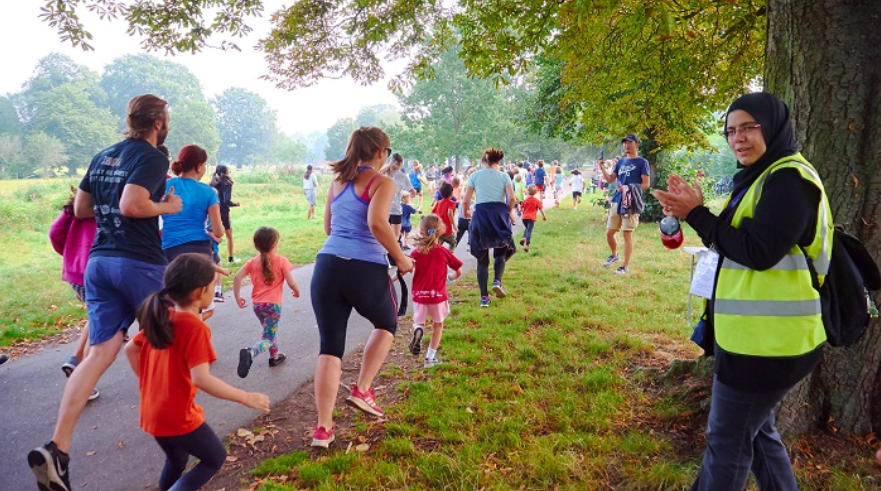New research published to mark parkrun’s 20th anniversary has revealed how it is worth nearly £700 million a year to the UK economy as a result of improved life satisfaction for those who take part.
The research led by Sheffield Hallam University and the University of Sheffield and based on a six-month study of newly registered parkrunners showed that life satisfaction increased after doing as few as two parkruns, with the greatest increase among those least active.
Over 45,000 people who have registered for parkrun in the UK this year identified themselves as completely inactive.
The study, led by Professor Steve Haake from Sheffield Hallam University’s Advanced Wellbeing Research Centre, which is located at Sheffield Olympic Legacy Park, highlighted that the main cause of the increase in life satisfaction was through improvements to both physical and mental health which in turn led to increased quality of life.
Using the UK Treasury’s approach to the valuation of wellbeing, the life satisfaction increase for parkrun was estimated as at least £667m a year. Further analysis showed that every £1 spent on parkrun returned at least £16.70 in benefits to the UK, including £10 in healthcare benefits; making parkrun, which sees around 200,000 people take part every week, across more than 900 locations in the UK, around three times more valuable than other initiatives designed to increase physical activity.
Prof Haake said: “In the current environment where funding is scarce, our research shows that initiatives like parkrun can be cost-effective. parkrun overcomes barriers that stop people engaging in physical activity by using methods often seen in psychotherapy – it is at the same time, same place every week and is free to take part.
“It also promotes strong friendships and more casual relationships, both of which are shown to improve mental health.”
The research, carried out by Sheffield Hallam University and the University of Sheffield, has been published as parkrun celebrates its 20th anniversary. parkruns are free, weekly 5k community events which take place in parks and open spaces across the UK and worldwide.
The first ever parkrun took place with 13 runners and 5 volunteers at Bushy Park in London on Saturday October 2nd, 2004. It has since grown to a global community of more than ten million people, in 23 countries, at more than 2,500 locations.
Chrissie Wellington, parkrun UK’s Head of Health and Wellbeing said: “Taking part in parkrun as a walker, runner or volunteer is incredibly beneficial to health and wellbeing, and this research shines a light on the monetary value of those wide-ranging benefits. With about 19,000 new parkrunners registering every week in the UK, we continue to expand our reach and impact, including to the UK economy. It is arguably the most impactful physical activity initiative the UK has seen in the last two decades.”
This weekend will see parkrun’s 20th anniversary celebrated across the UK and the world, with communities encouraged to come together at their local parkruns in a celebration of the milestone on Saturday 5 October.
Does participation in parkrun improve wellbeing and is it cost effective? A six-month study of parkrunners in the UK is published by PlosOne Global Public Health.
